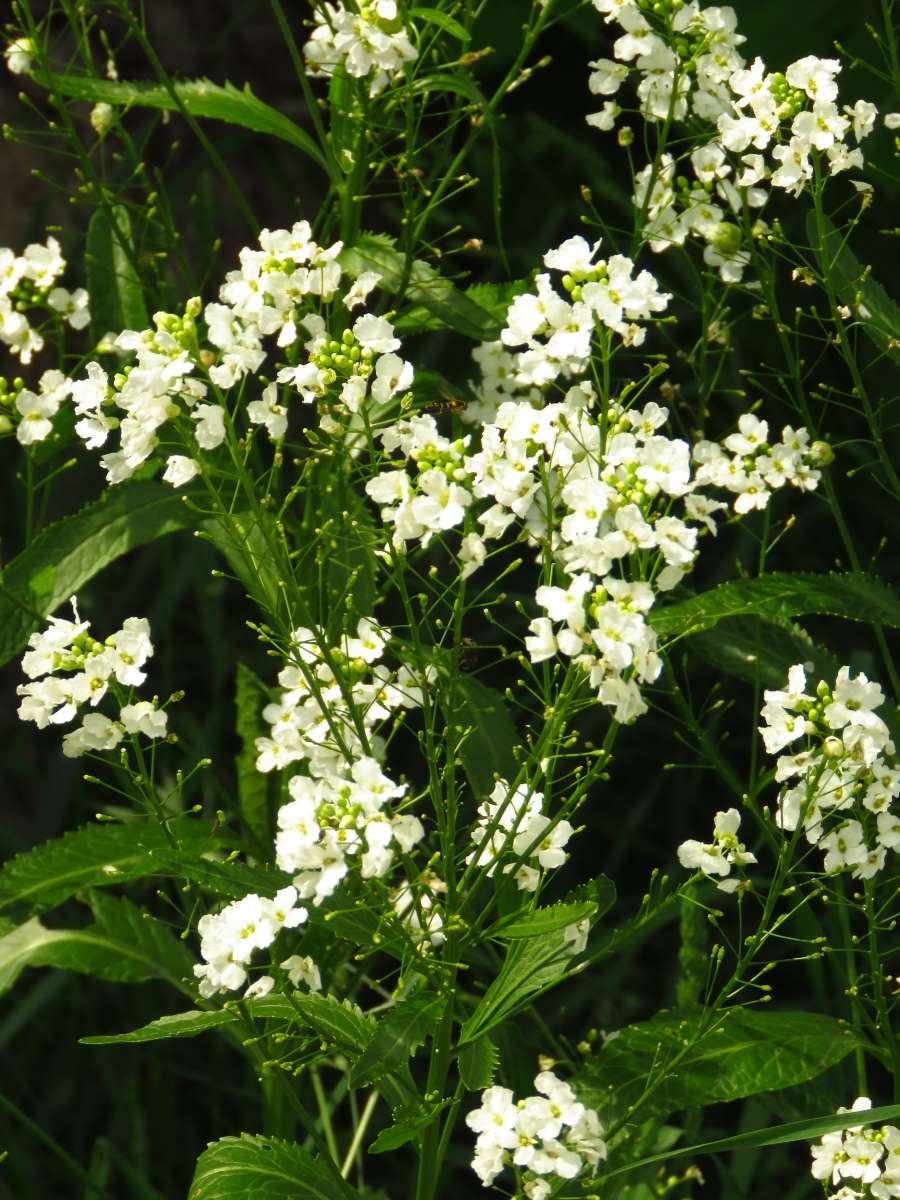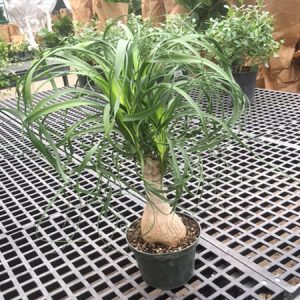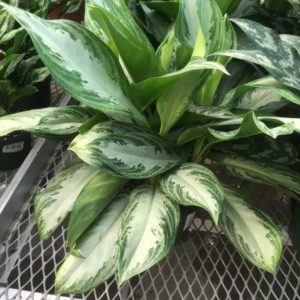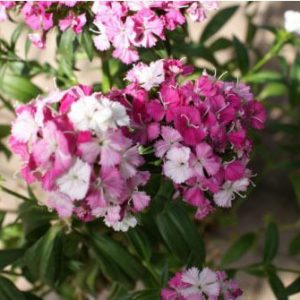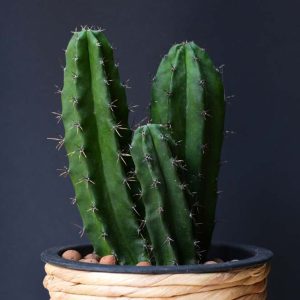Description
Armoracia – Horseradish
There are 3 species of vigorous taprooted, erect perennials, in this genus. They are found in a wide range of habitats at low altitudes, including wasteland, streamsides, and roadsides in Eurasia and Eastern U.S. From a woody base they produce simple or pinnatifid, coarsely toothed, basal leaves. In late spring to late summer it bears small, cross, 4 petalled white flowers in large terminal racemes or panicles on leafy branching stem. Oblong to egg shaped fruits follow the flowers.
Grow in full sun in light, fertile, moist but well-drained soil. During growing season water freely to prevent roots from becoming woody. Divide in winter.
Prone to powdery mildew, downy mildew, Alternaria leaf spot, Cercospora leaf spots, root rot, black rot, clubroot, and turnip mosaic.
Armoracia rusticana – Cochlearia armoracia – Common horseradish – Red Cole – This clump forming perennial from Southeastern Europe grows 36” tall and spreads 18” or more wide. It produces ovate-oblong toothed dark green leaves, 12-20” long branching. From late spring to late summer it bears terminal panicles of white flowers ¼-3/8” wide. Remove flowers to encourage root development. Used for horseradish sauce. Contact with sap may irritate skin.
Zones 3-10

